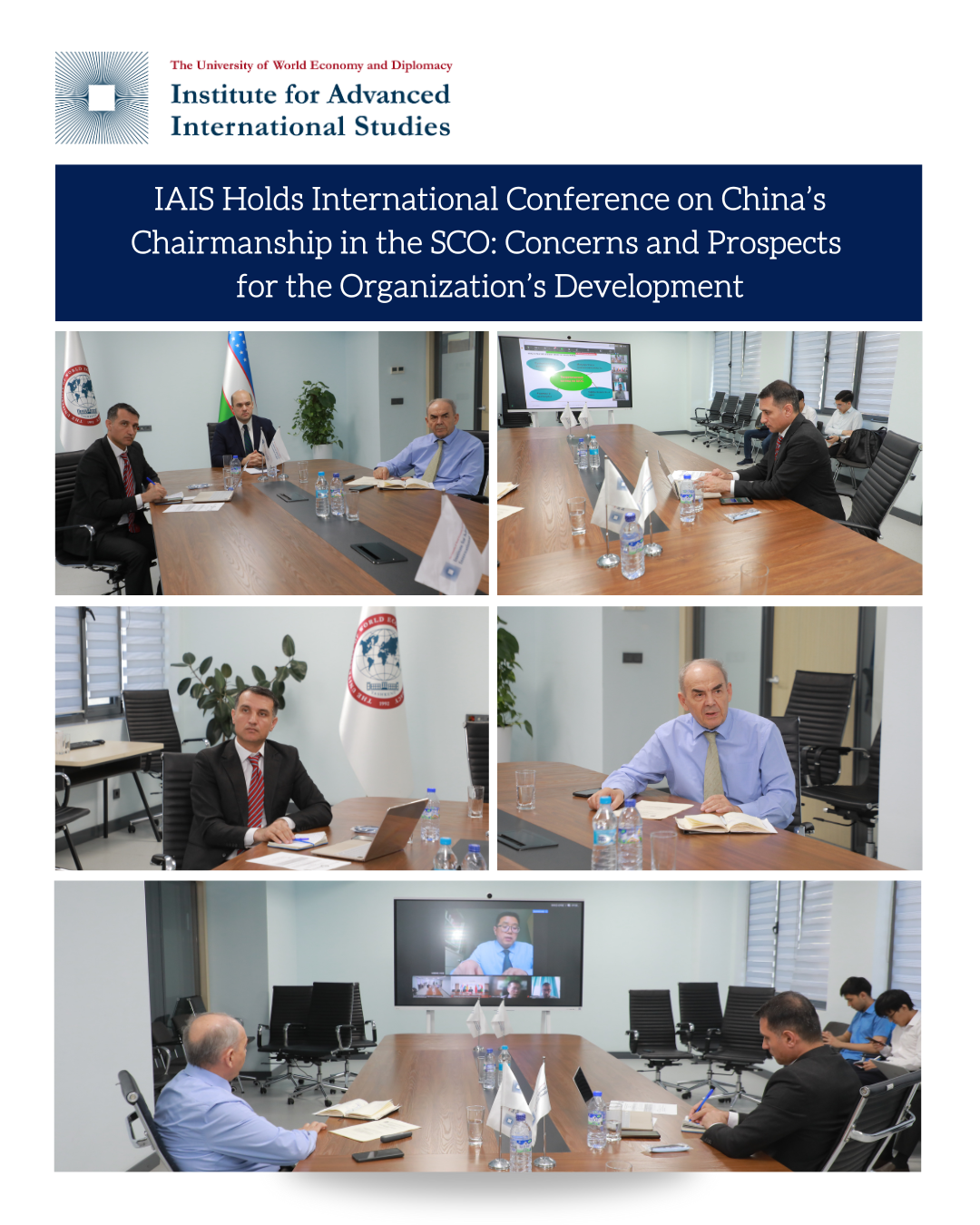
The Institute for Advanced International Studies (IAIS) under the University of World Economy and Diplomacy (UWED), in cooperation with the Shanghai Academy of Social Sciences and Fudan University, convened an international online conference titled “China’s Chairmanship in the SCO: Concerns and Prospects for the Organization’s Development” on 15 May. The event was held in English and Russian, gathering a distinguished group of scholars, policy experts, and practitioners from across Eurasia.
This academic forum was dedicated to examining the priorities and strategic vision of the Shanghai Cooperation Organization (SCO) during China’s ongoing chairmanship. In an era of profound geopolitical reordering and growing global uncertainty, participants engaged in a wide-ranging dialogue on the SCO’s potential to contribute to a more balanced, multipolar world order.
The conference opened with welcome remarks by Dr Akram Umarov, First Vice-Rector at UWED and Director of IAIS, and Dr Lifan Li, Director of the Centre for SCO Studies at the Shanghai Academy of Social Sciences (SASS). Both highlighted the increasing significance of academic cooperation in shaping the SCO’s strategic vision and emphasised the need to develop a shared intellectual space across Eurasian states.
The conference featured two expert panels. First, “The Role of the SCO in Global Development: Challenges and Opportunities”, explored the Organisation’s evolving contribution to regional and global development. Speakers addressed themes such as economic integration, educational and cultural exchanges, and innovation-driven cooperation. Presentations were delivered by renowned figures including Dr Ziguo Li (Director, China Institute of International Studies (CIIS)), Prof. Ibragim Mavlanov (Head of the Center for Economic Diplomacy, IAIS), Dr Zheng Shi (President, China-SCO Institute of Economic and Trade), Dr Jabin T. Jacob (Director, Centre of Excellence for Himalayan Studies at Shiv Nadar University, India), and Muhammad Shamsuddinov (PhD candidate, Institute for the Study of Problems of Asian and European Countries of the National Academy of Sciences of Tajikistan)
The second panel, “SCO Expansion and Issues of Modernisation in the Context of Global Uncertainty”, assessed the institutional transformation of the Organisation amidst its growing membership and the shifting balance of power. Discussions focused on questions of governance, regional security, and the implications of recent enlargement. Contributions were made by experts such as Dr Abbos Bobokhonov (Head of the Center for Asia-Pacific Studies, IAIS), Dr Dongjie Chen (Shanxi Normal University), Ruslan Izimov (Senior Research Fellow, Institute for Philosophy, Political Sciences and Religious Studies, Kazakhstan), Alexandra Perminova (ICCA RAS), Dr Liang Li (Lanzhou University), Dr Jildiz Nicharapova (Associate Professor, Department of Liberal Arts and Sciences, American University of Central Asia), and Dr Ma Bin (Deputy Director, Centre for SCO Studies at Fudan University).
In their concluding statements, Dr Ma Bin and Dr Abbos Bobokhonov reaffirmed the importance of sustained expert engagement in refining the SCO’s priorities and institutional design. They underscored that academic fora such as this are vital for fostering mutual understanding, policy innovation, and long-term strategic cooperation across the Eurasian continent.